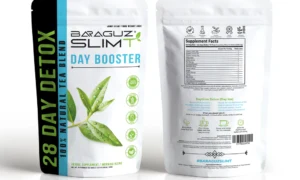Childhood asthma is a growing concern in today’s world, affecting millions of children worldwide. While conventional medicine offers effective treatments, Ayurveda, the ancient holistic healing system, provides a complementary approach to managing childhood asthma. Ayurvedic treatments aim to address the root causes of asthma and provide natural relief, making it an appealing option for parents seeking alternatives to conventional medications.
Understanding Childhood Asthma
Asthma is a chronic respiratory condition that affects the airways, making it difficult for individuals to breathe. In children, this condition can be particularly challenging, impacting their daily activities and overall quality of life. Common symptoms of childhood asthma include wheezing, coughing, shortness of breath, and chest tightness.
Ayurvedic Perspective on Childhood Asthma
Ayurvedic Treatment For Childhood Asthma views asthma as a result of imbalances in the body’s doshas, particularly Vata and Kapha. These imbalances can lead to the accumulation of toxins in the respiratory system, causing inflammation and narrowing of the airways. Ayurvedic treatments aim to restore balance, remove toxins, and alleviate the symptoms of childhood asthma.
Ayurvedic Treatment Approaches
- Dietary Modifications: Ayurveda places great emphasis on the importance of a balanced diet. Children with asthma should consume foods that pacify Vata and Kapha doshas. This typically includes warm, cooked, and easily digestible meals, incorporating spices like turmeric, ginger, and black pepper. Avoiding dairy and cold, mucus-forming foods is also recommended.
- Herbal Remedies: Ayurvedic herbs can be instrumental in managing childhood asthma. Commonly used herbs include:
- Tulsi (Holy Basil): Known for its anti-inflammatory and bronchodilatory properties, tulsi helps ease respiratory symptoms.
- Adhatoda Vasica (Vasaka): Vasaka is a well-known herb for treating respiratory conditions, as it acts as a natural bronchodilator and expectorant.
- Licorice (Yashtimadhu): Yashtimadhu soothes the airways and reduces inflammation, making it beneficial for asthma management.
- Pranayama and Yoga: Breathing exercises and yoga postures can help children with asthma improve lung function and manage stress. Techniques like Anulom Vilom and Bhramari Pranayama can be particularly effective.
- Ayurvedic Massage (Abhyanga): Regular massage with warm Ayurvedic oils can help improve blood circulation, relax the muscles, and promote overall well-being, which can be beneficial for asthma patients.
- Detoxification (Panchakarma): Ayurvedic detoxification therapies can remove accumulated toxins and mucus from the respiratory system. Panchakarma treatments, such as Nasya (nasal therapy) and Vamana (therapeutic vomiting), are tailored to the individual’s constitution.
- Lifestyle Recommendations: Ayurveda emphasizes the importance of a balanced daily routine, including adequate sleep, regular exercise, and stress management. Maintaining a routine can help prevent asthma triggers and reduce the severity of symptoms.
- Consultation with Ayurvedic Practitioners: Ayurvedic treatment for childhood asthma should always be tailored to the individual’s unique constitution and symptoms. Consulting with an experienced Ayurvedic practitioner is essential to create a personalized treatment plan.
The Role of Ayurveda in Asthma Management
Ayurvedic treatment for childhood asthma does not aim to replace conventional medicine but can complement it effectively. By addressing the root causes of asthma and promoting overall well-being, Ayurvedic Doctors Online Consultation can help reduce the frequency and severity of asthma attacks. Additionally, Ayurvedic treatments are generally safe and free from significant side effects, making them a viable option for children.
It’s important to note that Ayurvedic treatment may take time to show significant improvements. Therefore, it’s advisable to continue conventional medications and consult with a pediatrician for asthma management. Ayurveda can be integrated alongside conventional treatment to provide holistic care.
Safety and Precautions: When considering Ayurvedic treatment for childhood asthma, it’s essential to follow these precautions:
- Always consult with a qualified Ayurvedic practitioner.
- Inform your child’s pediatrician about any Ayurvedic treatments being used.
- Ensure that any herbal supplements are appropriate for your child’s age and weight.
Conclusion
Childhood asthma can be challenging for both children and their parents. Ayurvedic treatment offers a holistic and natural approach to managing asthma, addressing the root causes of the condition, and providing relief from its symptoms. By making dietary changes, using herbal remedies, practicing yoga and pranayama, and following Ayurvedic lifestyle recommendations, children with asthma can experience an improved quality of life. It’s important to work with both Ayurvedic practitioners and pediatricians to ensure comprehensive and safe asthma management for your child.







































